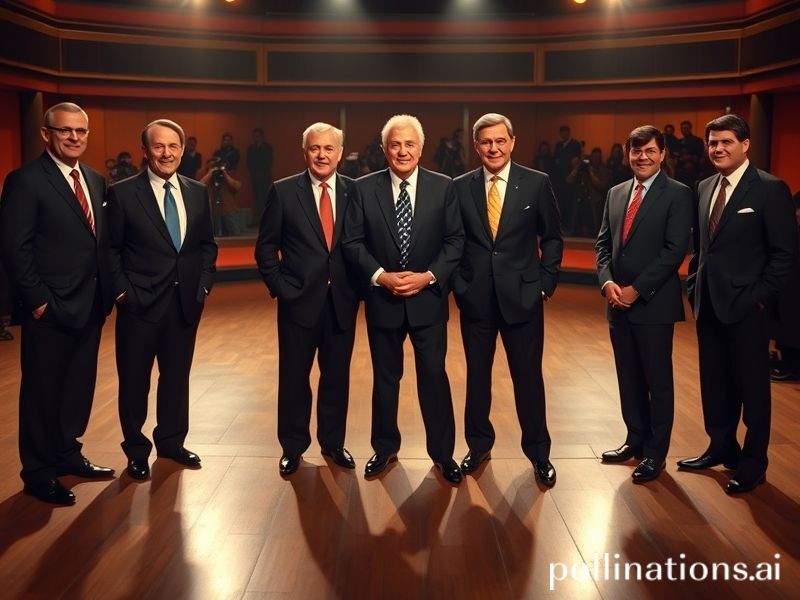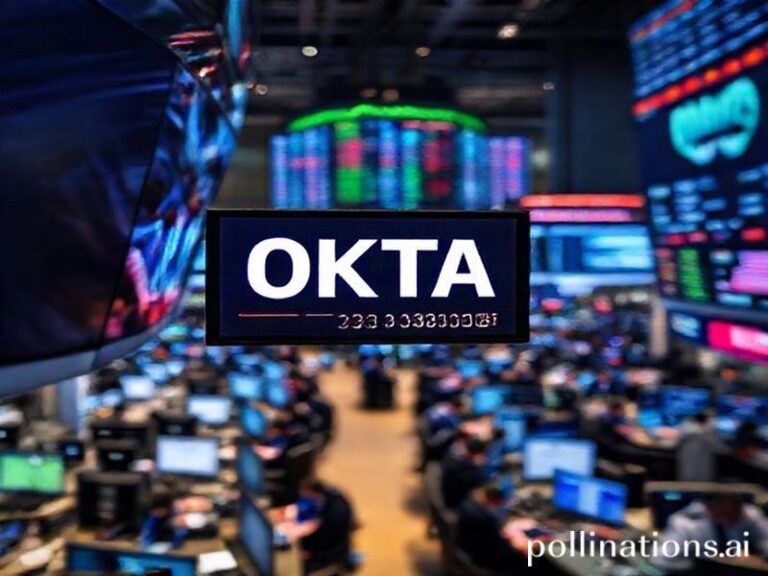Global Midnight Court: How Late Night Talk Shows Conquered the Planet One Cynical Gag at a Time
Late Night’s Borderless Reign: How Suits, Sarcasm, and Studio Applause Became the World’s Shared Lullaby
By Dave’s Locker International Correspondent
Somewhere between the midnight muezzin’s call in Jakarta and the 2 a.m. clink of last-call glasses in Reykjavík, a curious planetary ritual unfolds: millions of humans—jet-lagged consultants, insomniac medics, and doom-scrolling teenagers—queue up the same YouTube clips of a middle-aged American in a tailored suit telling jokes about Medicare. The suit’s name might be Jimmy, Stephen, or Seth; the language is English, but the subtitles come in 47 flavors, including Welsh and Tagalog. Welcome to the golden age of late night talk shows, when the sun never quite sets on canned laughter.
Once upon a simpler century, a talk show host’s influence ended at the Hudson River. Johnny Carson’s monologues could sink aU.S. senator, but a Belgian beet farmer remained blessedly ignorant. Today, the same monologue ricochets across fiber-optic cables, auto-captioned and algorithmically blessed, until a beet farmer in Flanders is giggling about U.S. filibuster rules between forkfuls of stoofvlees. Cultural imperialism has never been so affably packaged.
The economics are almost insultingly efficient. A single eight-minute segment on American vaccine hesitancy costs roughly what Netflix blows on three seconds of exploding dragons, yet it nets global CPMs because advertisers love “safe topicality.” Translation: jokes about booster shots don’t trigger Chinese censors or Gulf morality police quite like, say, a Taylor Swift breakup anthem. The result is a planetary safe space where the most controversial thing you can say is that maybe billionaires should pay taxes—delivered, of course, with the tonal equivalent of a shrug emoji.
Europe, never one to miss a chance at self-congratulation, has responded with its own after-dark offerings. France’s “Quotidien” serves up macabre riffs on EU agricultural subsidies; Britain’s “The Last Leg” weaponizes Brexit regret into punchlines so dry they could re-moisten a week-old scone. But the budgets are Monopoly money next to the Americans’, so the hosts moonlight by guest-starring on the U.S. feeds—like cultural exchange students who arrive knowing the host family owns the dorm.
Asia prefers its insomnia with a side of kawaii. Japan’s “Wednesday’s Downtown” straps comedians to lie detectors while they insult each other’s fashion choices; South Korea’s “Saturday Night Live Korea” once parodied North Korean missile tests using only rubber chickens and impeccable timing. Both borrow the Hollywood format—desk, band, celebrity plug—but lace it with local neuroses. The anxiety is familiar; the packaging is kawaii-flavored Xanax.
The darker joke, naturally, is that while late night hosts posture as the court jesters of democracy, their real constituency is the multinational attention market. When a Saudi prince buys a $500 million stake in the parent conglomerate, the monologue’s edge dulls faster than a Guantanamo toothbrush. Hosts who once roasted imperial misadventures now pivot to safer targets: airline food, crypto bros, the evergreen comedic gold of Florida Man. Viewers from Lagos to Lahore laugh, but the nervous subtext is universal: we’re all watching the same sanitized court jesters because the court has gone global—and it signs the checks.
Still, the ritual serves a purpose. In a world where push alerts arrive like artillery shells, the late-night desk remains a low-stakes DMZ. Ukrainians huddled in metro shelters queue the same Closer Look segments as Canadians hiding from polar vortexes. The jokes rarely solve anything, but for six commercial breaks we inhabit a shared synapse of irony, a fleeting acknowledgment that the planet is burning yet somehow still capable of producing punchlines. Call it gallows humor with Dolby surround sound.
So the next time you hear a studio audience howl at a throwaway quip about congressional gridlock, remember: the laugh track is multilingual, the suits are bespoke, and the stakes are—depending on your postal code—either everything or nothing at all. Somewhere a beet farmer in Flanders hits replay, and for one algorithmic moment, the world’s collective despair is downgraded from DEFCON 1 to a manageable eye roll. That, dear reader, is what passes for unity in the 21st century.
Sleep tight.







